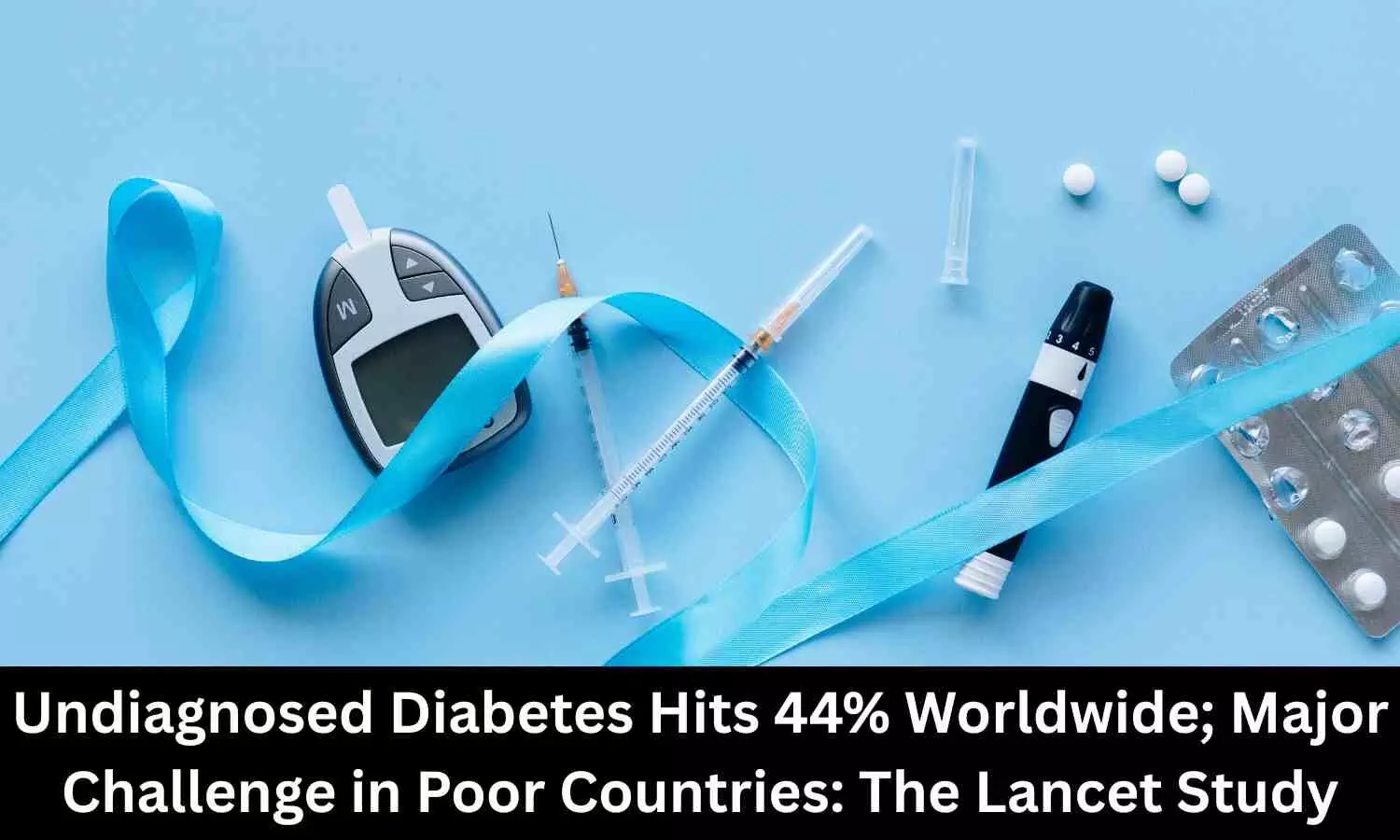Undiagnosed Diabetes Hits 44% Worldwide; Major Challenge in Poor Countries: The Lancet Study
- byDoctor News Daily Team
- 10 September, 2025
- 0 Comments
- 0 Mins

Almost 44% of diabetics worldwide remained undiagnosed in 2023, exposing a major global health challenge, particularly in low- and middle-income countries where proper diagnosis and management of glycaemic levels lag behind. Data from The Lancet Diabetes and Endocrinology reveals that India saw a 14% rise in diabetes diagnosis rates since 2000, with 43.6% of its diabetic population diagnosed in 2023. Impressively, over 97% of those diagnosed were undergoing treatment. The Global Burden of Disease study, covering 204 countries, shows that while more than half of adults aged 15 and above worldwide were diagnosed with diabetes by 2023, vast disparities exist. North America and high-income Asia Pacific regions lead in diagnosis and treatment, while central sub-Saharan Africa struggles, with fewer than 20% aware of their condition. By 2050, diabetes is projected to affect 1.3 billion people globally. Researchers urge urgent investment in youth screening and broader access to medicines andglucosemonitoring, echoing WHO’s 2030 targets: 80% diagnosed and 80% of those maintaining good glycaemic andblood pressurecontrol. Without intensified efforts, diabetes risks becoming a silent epidemic. Reference: Stafford, Lauryn K et al.; Global, regional, and national cascades of diabetes care, 2000–23: a systematic review and modelling analysis using findings from the Global Burden of Disease Study; The Lancet Diabetes & Endocrinology, Volume 0, Issue 0; doi: 10.1016/S2213-8587(25)00217-7
Disclaimer: This website is designed for healthcare professionals and serves solely for informational purposes.
The content provided should not be interpreted as medical advice, diagnosis, treatment recommendations, prescriptions, or endorsements of specific medical practices. It is not a replacement for professional medical consultation or the expertise of a licensed healthcare provider.
Given the ever-evolving nature of medical science, we strive to keep our information accurate and up to date. However, we do not guarantee the completeness or accuracy of the content.
If you come across any inconsistencies, please reach out to us at
admin@doctornewsdaily.com.
We do not support or endorse medical opinions, treatments, or recommendations that contradict the advice of qualified healthcare professionals.
By using this website, you agree to our
Terms of Use,
Privacy Policy, and
Advertisement Policy.
For further details, please review our
Full Disclaimer.
Recent News
Gum disease could silently cause serious brain dam...
- 03 November, 2025
Can Early-Day Fasting Significantly Boost Metaboli...
- 03 November, 2025
Delhi HC bars doctor from running medical centre d...
- 03 November, 2025
Daily Newsletter
Get all the top stories from Blogs to keep track.


0 Comments
Post a comment
No comments yet. Be the first to comment!